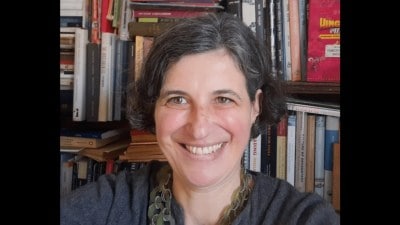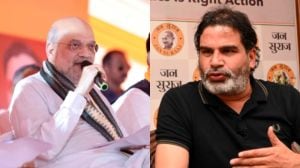Govt tricks opponents, tables women’s quota bill in Lok Sabha
NEW DELHI, DECEMBER 23: Government today foxed the opponents of the controversial Women's Reservation Bill by getting it introduced in Lok...

NEW DELHI, DECEMBER 23: Government today foxed the opponents of the controversial Women’s Reservation Bill by getting it introduced in Lok Sabha amidst confusion and attempts to snatch it from the hands of Law Minister Ram Jethmalani.
In by now familiar scenes, the bill was introduced for the third time in the house – first in ’96, then in ’98 – as its opponents tried to stall it by trying to grab anything that was available in the Law Minister’s hands.
The government appeared to have been well prepared with Jethmalani seeking leave of the House for introduction of the Constitution 85th Amendment Bill without help from any paper that befuddled the opponents.
The measure provides for one-third reservation of seats for women in Lok Sabha and state assemblies but members belonging to Samajwadi Party, Rashtriya Janata Dal, Bahujan Samaj Party and Muslim League vociferously opposed its introduction in its present form as they wanted sub-quotas for women belonging to backward classes, minorities and SCs and STs.
After the introduction, SP leader Mulayam Singh Yadav claimed that the bill has still not been introduced and announced that his party would launch a nationwide agitation against the measure which he said was "anti-national".
As Speaker G M C Balayogi called out Jethmalani to move the motion seeking leave of the House for its introduction, Samajwadi Party member S P Singh snatched a piece of paper from the Law Minister, who pushed him back.
There was a feeling of excitement among the opponents of the measure who thought they had succeeded in snatching the bill and tore it.
But as it turned out that Jethmalani did not have a copy of the bill and had merely moved the motion without reading from any text.
There were two rings of protective cordon around Jethmalani, who seemed to enjoy it all with Railway Minister Mamata Banerjee and Finance Minister Yashwant Sinha having a hearty laugh that it was after all a different piece of paper that the opponents had grabbed and torn.
As Muslim League member G M Banatwalla and RJD leader Raghuvansh Prasad Singh refused to respond to Speaker’s call to them to come out with their opposition to the bill’s introduction, Balayogi put the Minister’s motion to vote of the House.
He declared that "the bill has been introduced" after the ruling coalition members shouted a deafening "aye" when the motion was put to a voice vote.
While the ruling coalition members and those belonging to Congress and Left parties thumped the desks and gloated over what was managed successfully, the SP, RJD and BSP members shouted "hai, hai".
In the din that followed, the Speaker adjourned the House for an hour for lunch.
Earlier in the day, the House witnessed noisy scenes on the issue immediately after the question hour and the Speaker adjourned the House for an hour.
The much-hyped Women’s Reservation Bill seeks to provide 33 per cent reservation for women in the Lower House and State Assemblies.
The statement of objects and reasons of the bill introduced by Law minister Ram Jethmalani said the issue of empowerment of women had been raised in different fora in the country from time to time.
"Political empowerment of women is rightly perceived as a powerful and indispensable tool for upliftment of women and eliminating gender inequality and discrimination," it said, adding that re-introduction of the bill "is in fulfillment of the people’s mandate".
It said as a first step to achieve this objective, reservation for women in panchayats and municipalities was provided by insertion of two articles in the Constitution through the Constitution (73rd amendment) Act, 1992 and the Constitution (74th amendment) Act, 1992 respectively.
The next step was the introduction of the Constitution (81st amendment) bill, 1996 in the 11th Lok Sabha during the Deve Gowda regime. It sought to reserve not less than one-third of the total number of seats filled by direct election in Lok Sabha and in state assemblies for women.
The bill was referred to a joint committee of parliament which further strengthened some of its provisions by extending reservation for women even in those cases where number of seats was less than three in a state or a Union territory.
The bill does not provide for reservation of seats for women belonging to backward classes and minorities, a demand vociferously being raised by Samajwadi Party, Bahujan Samaj Party, Rashtriya Janata Dal and Muslim League.
The statement said the constitution (81st amendment) Bill, 1996 as reported by the joint committee, however, lapsed with the dissolution of the 11th Lok Sabha.
Again, the bill was revived as the constitution (84th amendment) Bill, 1998 by the BJP-led government in the 12th Lok Sabha but this also lapsed following dissolution of the House.
The bill also provides for reservation of one-third of the reserved seats for women belonging to SCs and STs. If the state or UT in all has only one SC/ST seat, then it shall be reserved for women belonging to these two categories in the first of a block of three elections to the Lok Sabha. No seat shall be reserved in the other two general election.
In case the number of reserved seats for SC/ST women is two, then one seat shall be reserved for SC/ST women in the first two general elections with the same constituency not being reserved in both the elections. No seat shall be reserved for women belonging to SC AND ST In the third general election.





- 01
- 02
- 03
- 04
- 05


























